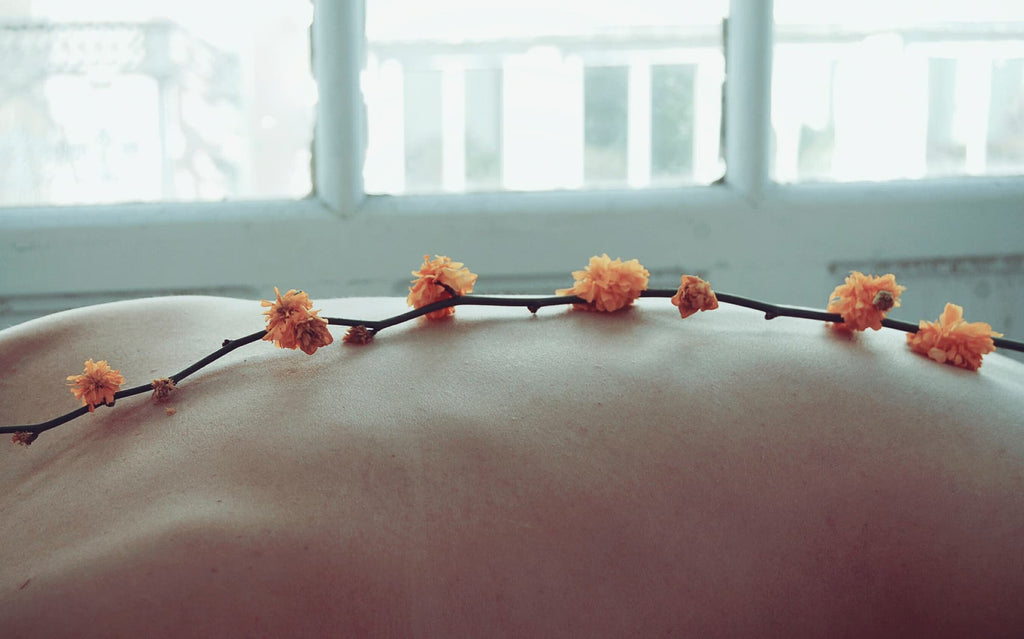UMOA CARE OF DELICATE SKINS

Does your skin easily turn red, feel tight, and sometimes itch or burn? It is likely that you have sensitive skin or that it has become sensitive for certain reasons. Does this usually happen when your skin is exposed to temperature changes, wind, or the sun?
In this post, we will give you some insights on this matter, as well as explain how UMOA takes care of this type of skin.
What does it mean to have sensitive skin?
How do you take care of such delicate skin?
What does it mean to have sensitive skin?
Diagnosing sensitive skin is not easy; the main characteristic is having a weaker or compromised skin barrier, which allows irritants to penetrate more easily and deeply from the outside.
In this situation, the nerve endings in the skin become more sensitive, triggering pain signals in response to mild stimuli that should be harmless, due to a lower sensitivity threshold.
But beware! Let's not confuse this type of skin with allergic skin. In the latter, the immune system plays a key role with an "antigen-antibody" reaction, which develops an inflammatory allergic response.

Recently, the perception of having more sensitive skin has increased notably due, fundamentally, to some unhealthy habits, including the use and abuse of certain cosmetic products.
Exposure to the sun, sudden changes in temperature, wind, pollution, smoke, an unbalanced diet... all of this can contribute to weakening the barrier function of our skin and making it more fragile to external aggressions.
In addition to the above, certain genetic elements are added: the first is our phototype, the skin's ability to assimilate solar radiation, producing melanin, the pigment that gives color to our skin. You can easily imagine that lighter skin types (phototype I) are the most predisposed to sensitization to the sun.
Other factors are added to the phototype, such as having a thinner stratum corneum, decreased epidermal hydration, or very active sweat glands. All of these can influence the sensitivity of our skin. In any case, if you suspect you have sensitive skin, we strongly recommend that you confirm it with a dermatologist.
Keep reading, and if you would also like to delve into how to restore the skin's barrier function, we recommend this other article.
UMOA and sensitive skins
When it comes to caring for delicate skin, our commitment dates back to 2011, when we launched a large-scale project to protect one of the groups that suffer the most from having very sensitive skin. We are talking about people with albinism in certain countries in Africa.

If you are not very familiar with the topic, albinism is a hereditary genetic condition. Individuals with albinism do not produce melanin properly, resulting in hair that is usually almost white, very light-colored iris of the eyes, and very pale skin. You can imagine that even brief exposure to the sun can cause significant burns for people with albinism.
Having this condition in Africa exposes them to two major enemies:
- The first one is ignorance and discrimination surrounding their condition, which leads to ostracism and persecution.
- The second one is the sun, which damages their delicate skin and poses a very high risk of developing skin cancer.
Fighting against discrimination requires time and extensive work with the community and institutions, but promoting education in self-care for this type of skin can have almost immediate results. If you want to learn more about our work with people with albinism, you can read about it here.
How do you take care of such delicate skin?
The foundation of everything is a good essential practice for almost any type of skin: the constant use of sunscreen.
It is true that in the case of such fragile skin (albino skin is classified as "phototype 0" on the Fitzpatrick scale), special care is necessary.
Our initial formulation trials were carried out with the help of three fascinating women, leaders of the dermocosmetic laboratory Farma Dorsh, who offered their support and knowledge to work on the development of a product specifically designed for such delicate skin.
In our first development, we were clear that the sunscreen in question had to go beyond UV radiation protection, strengthening a weakened barrier function and including healthy and respectful ingredients for such fragile and generally neglected skin.
Both in the past and today, conducting efficacy studies and tests, both clinical and instrumental, has been key to ensuring that our formulas are suitable.
To achieve this, throughout our trajectory, we have collaborated with the International Foundation of Dermatology and the Spanish Academy of Dermatology and Venereology in designing efficacy studies of our formulas. More recently, the Spanish CRO Zurko Research joined the team a center for clinical and in vitro evaluation, where we test the safety and efficacy of UMOA cosmetic products.
That is why we have also sought inspiration in nature, balancing scientific evidence and the benefits of the plant kingdom, always subjecting our products to external validated testing.

We want to be a loudspeaker that spreads inclusive messages, promoting values of respect, coexistence, and celebration of diversity in all its forms, promoting a change of attitude in those around us.
UMOA is a new approach to cosmetic consumption: CARE TO CARE, or in other words, taking care of yourself while taking care of another vulnerable person.
Thank you for joining our movement.







Leave a comment